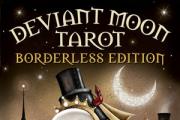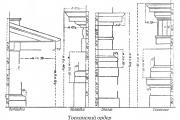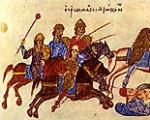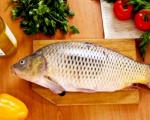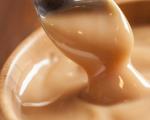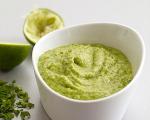26.06.2020
Immunomodulators: mechanism of action and clinical application. Immunostimulating agents - concept, classification, mechanism of action, general characteristics of representatives of the group Clinical use of immunomodulators
Immunomodulators are a group of pharmacological drugs that activate the body’s immunological defense at the cellular or humoral level. These drugs stimulate the immune system and increase the body's nonspecific resistance.

main organs of the human immune system
Immunity is a unique system of the human body that is capable of destroying foreign substances and needs proper correction. Normally, immunocompetent cells are produced in response to the introduction of pathogenic biological agents into the body - viruses, microbes and other infectious agents. Immunodeficiency states are characterized by decreased production of these cells and are characterized by frequent morbidity. Immunomodulators are special drugs, united by a common name and a similar mechanism of action, used to prevent various ailments and strengthen the immune system.
Currently, the pharmacological industry produces a huge number of products that have immunostimulating, immunomodulating, immunocorrective and immunosuppressive effects. They are freely sold in pharmacy chains. Most of them have side effects and have a negative impact on the body. Before purchasing such medications, you should consult your doctor.
- Immunostimulants strengthen the human immune system, ensure more efficient functioning of the immune system and provoke the production of protective cellular components. Immunostimulants are harmless for persons who do not have immune system disorders and exacerbations of chronic pathologies.
- Immunomodulators correct the balance of immunocompetent cells in autoimmune diseases and balance all components of the immune system, suppressing or increasing their activity.
- Immunocorrectors have an effect only on certain structures of the immune system, normalizing their activity.
- Immunosuppressants suppress the production of immune components in cases where its hyperactivity causes harm to the human body.
Self-medication and inadequate medication use can lead to the development of autoimmune pathology, in which the body begins to perceive its own cells as foreign and fights them. Immunostimulants should be taken according to strict indications and as prescribed by the attending physician. This is especially true for children, because their immune system is fully formed only by the age of 14.
But in some cases, you simply cannot do without taking drugs from this group. In severe diseases with a high risk of developing serious complications, taking immunostimulants is justified even in children and pregnant women. Most immunomodulators are low-toxic and quite effective.
Use of immunostimulants
Preliminary immunocorrection is aimed at eliminating the underlying pathology without the use of basic therapy drugs. It is prescribed to persons with diseases of the kidneys, digestive system, rheumatism, and in preparation for surgical interventions.

Diseases for which immunostimulants are used:
- Congenital immunodeficiency,
- Malignant neoplasms,
- Inflammation of viral and bacterial etiology,
- Mycoses and protozooses,
- Helminthiasis,
- Kidney and liver pathology,
- Endocrinopathology – diabetes mellitus and other metabolic disorders,
- Immunosuppression due to the use of certain medications - cytostatics, glucocorticosteroids, NSAIDs, antibiotics, antidepressants, anticoagulants,
- Immunodeficiency caused by ionizing radiation, excessive alcohol intake, severe stress,
- Allergy,
- Conditions after transplantation,
- Secondary post-traumatic and post-intoxication immunodeficiency states.
The presence of signs of immune deficiency is an absolute indication for the use of immunostimulants in children.
Only a pediatrician can choose the best immunomodulator for children.
People who are most often prescribed immunomodulators:
- Children with weak immune systems
- Elderly people with weakened immune systems,
- People with a busy lifestyle.
Treatment with immunomodulators should be under the supervision of a physician and an immunological blood test.
Classification
The list of modern immunomodulators today is very large. Depending on their origin, immunostimulants are distinguished:

Independent use of immunostimulants is rarely justified. They are usually used as an adjunct to the main treatment of pathology. The choice of drug is determined by the characteristics of immunological disorders in the patient’s body. The effectiveness of drugs is considered to be maximum during exacerbation of the pathology. The duration of therapy usually varies from 1 to 9 months. The use of adequate doses of medication and proper adherence to the treatment regimen allows immunostimulants to fully realize their therapeutic effects.
Some probiotics, cytostatics, hormones, vitamins, antibacterial drugs, and immunoglobulins also have an immunomodulatory effect.
Synthetic immunostimulants
Synthetic adaptogens have an immunostimulating effect on the body and increase its resistance to adverse factors. The main representatives of this group are “Dibazol” and “Bemitil”. Due to their pronounced immunostimulating activity, the drugs have an antiasthenic effect and help the body quickly recover after prolonged exposure to extreme conditions.

For frequent and prolonged infections, Dibazol is combined with Levamisole or Decamevit for preventive and therapeutic purposes.

Endogenous immunostimulants
This group includes preparations of the thymus, red bone marrow and placenta.
Thymic peptides are produced by thymus cells and regulate the functioning of the immune system. They change the functions of T-lymphocytes and restore the balance of their subpopulations. After the use of endogenous immunostimulants, the number of cells in the blood is normalized, which indicates their pronounced immunomodulatory effect. Endogenous immunostimulants enhance the production of interferons and increase the activity of immunocompetent cells.

- "Timalin" has an immunomodulatory effect, activates regeneration and repair processes. It stimulates cellular immunity and phagocytosis, normalizes the number of lymphocytes, increases the secretion of interferons, and restores immunological reactivity. This drug is used to treat immunodeficiency conditions that have developed against the background of acute and chronic infections and destructive processes.
- "Imunofan"– a drug widely used in cases where the human immune system cannot independently resist the disease and requires pharmacological support. It stimulates the immune system, removes toxins and free radicals from the body, and has a hepatoprotective effect.
Interferons
 Interferons increase the nonspecific resistance of the human body and protect it from viral, bacterial or other antigenic attacks. The most effective drugs that have a similar effect are "Cycloferon", "Viferon", "Anaferon", "Arbidol". They contain synthesized proteins that push the body to produce its own interferons.
Interferons increase the nonspecific resistance of the human body and protect it from viral, bacterial or other antigenic attacks. The most effective drugs that have a similar effect are "Cycloferon", "Viferon", "Anaferon", "Arbidol". They contain synthesized proteins that push the body to produce its own interferons.
Naturally occurring drugs include leukocyte human interferon.
Long-term use of drugs in this group minimizes their effectiveness and suppresses a person’s own immunity, which ceases to function actively. Inadequate and too long-term use of them has a negative impact on the immunity of adults and children.
In combination with other medications, interferons are prescribed to patients with viral infections, laryngeal papillomatosis, and cancer. They are used intranasally, orally, intramuscularly and intravenously.
Preparations of microbial origin
Medicines in this group have a direct effect on the monocyte-macrophage system. Activated blood cells begin to produce cytokines, which trigger innate and acquired immune responses. The main task of these drugs is to remove pathogenic microbes from the body.

Plant adaptogens
Herbal adaptogens include extracts of echinacea, eleutherococcus, ginseng, and lemongrass. These are “mild” immunostimulants, widely used in clinical practice. Drugs from this group are prescribed to patients with immunodeficiency without a preliminary immunological examination. Adaptogens trigger the work of enzyme systems and biosynthetic processes, and activate the body’s nonspecific resistance.

The use of plant adaptogens for prophylactic purposes reduces the incidence of acute respiratory viral infections and, resists the development of radiation sickness, weakens the toxic effect of cytostatics.

To prevent a number of diseases, as well as for a speedy recovery, patients are recommended to drink ginger tea or cinnamon tea daily, and take black peppercorns.
Video: about immunity – School of Dr. Komarovsky
Drugs that activate (restore) the function of the cellular and/or humoral immune system are called immunostimulants.
They are used for primary
(congenital, usually of hereditary nature), and secondary
(acquired) caused by various factors, both endogenous (disease) and exogenous (for example, stress, medications, ionizing radiation).
However, positive results have been obtained mainly in the treatment of diseases accompanied by secondary immunodeficiency. For primary immunodeficiencies, the most promising treatment method at present is transplantation of immunocompetent organs and cells (bone marrow, thymus). Secondary immunodeficiencies can develop with many viral (measles, rubella, influenza, mumps, viral hepatitis, HIV infection, etc.), bacterial (leprosy, cholera, syphilis, tuberculosis, etc.), mycotic, protozoal (malaria, toxoplasmosis, trypanosomiasis, leishmaniasis, etc.) diseases and helminthiasis. Insufficiency of the immune system has also been identified in tumors of a lymphoreticular nature (reticulosarcoma, lymphogranulomatosis, lymphosarcoma, myeloma, chronic lymphocytic leukemia, etc.) and in pathological processes accompanied by loss of protein or disturbances in its metabolism (kidney diseases with renal failure, burn disease, diabetes mellitus and other metabolic diseases, chronic hepatitis, severe surgical injuries, etc.). Immunosuppression can be caused by drugs (cytostatics, glucocorticosteroids, NSAIDs, antibiotics, ALG, ATG, monoclonal antibodies; CNS depressants, anticoagulants, etc.), as well as alcohol, ionizing radiation, pesticides and other exogenous factors. Immaturity of the immune system has been found in newborns and children of the first years of life. Immunodeficiency conditions can also occur as a result of aging. Exogenous damaging factors affect the T-system of immunity earlier and more intensely. With severe protein deficiency, the B-system is predominantly affected. Old age represents a severe T-immunodeficiency.
Classification.
Immunostimulants include drugs of various pharmacological groups, biogenic substances, heterogeneous in chemical structure. By origin
they can be classified as follows:
1. Endogenous compounds and their synthetic analogues:
Preparations of thymus (thymalin, vilosen, imunofan, thymogen), red bone marrow (myelopid), placenta (placenta extract)
Immunoglobulins - normal human immunoglobulin (imunovenin, izgam, etc.); human antistaphylococcal immunoglobulin, human anticytomegalovirus immunoglobulin (cytotect), etc.;
Interferons - recombinant interferon-γ (gammaferon, immunoferon)
Interleukins - recombinant interleukin-1β (betaleukin), recombinant interleukin-2β (proleukin)
Growth factors - recombinant human granulocyte-macrophage colony-stimulating factor (molgramostim)
Regulatory peptides - dalargin.
2. bacterial origin and their analogues:
vaccines (BCG, etc.), extracts (Biostom), lysates (bronchomunal, Imudon), cell wall lipopolysaccharide (pyrogenal, prodigiosan, lykopida), a combination of ribosomes and cell wall fractions (Ribomunil), fungal (bestatin, etc.) and yeast polysaccharides (zymosan), probiotics (Linex, blastene).
3. Synthetic:
purine and pyrimidine (methyluracil, pentoxyl, etc.), imidazole derivatives (dibazole), interferon inducers (cycloferon, amixin), etc.
4. Plant origin and their analogues:
adaptogens (preparations of echinacea (immunal), eleutherococcus, ginseng, Rhodiola rosea), others (aloe, garlic, beans, onions, red pepper, etc.).
5. Other classes:
preparations of vitamins C, A, E; metals (zinc, copper, etc.).
Pharmacodynamics.
The mechanism of action of immunostimulation of all known drugs has been poorly studied. All immunomodulators cause total stimulation of the immune system. However, recently a certain selectivity has been revealed in the action of various immunostimulants on various components and stages of the immune response: macrophages, T- and B-lymphocytes, their subpopulations, natural killer cells, etc. Therefore, according to the mechanism of action, immunostimulants are classified into drugs mainly stimulate:
1. Nonspecific protective factors:
anabolic agents - steroidal (retabolil, phenobolil), non-steroidal (methyluracil, pentoxyl), preparations of vitamins A, E, C, herbal;
2. Monocytes (macrophages):
sodium nucleinate, zymosan, vaccines (BCG, etc.), Pyrogenal, prodigiosan, Biostom;
3. T lymphocytes:
dibazol, thymalin, taktivin, thymogen, zinc preparations, interval Leukin (IL-2), etc.;
4. B lymphocytes:
myelopid, dalargina, bestatin, amastatin, etc.;
5. NK and K cells:
interferons, antiviral drugs (isoprinosine), placenta extract, etc.
These data create a fundamental opportunity for their more differentiated use, focused on the modulation of individual components of immunity. At the same time, such selectivity of the action of immunostimulants and a certain selectivity of immunosuppressants create theoretical prerequisites for the development of a combination of drugs from both groups, regimens of their use (simultaneous or sequential) for adequate targeted correction of immunity both in autoimmune diseases and in immunodeficiency states.
Indications.
Experience in the clinical use of immunostimulants is still limited, which is explained by the lack of immunological specificity, severe side effects and lack of effectiveness.
The choice of drug should not occur spontaneously, without taking into account the immunological status of the patient and the characteristics of the immunotropic activity of the catalyst intended. When choosing an immunostimulant, preference is given to drugs of natural origin that have moderate modulating properties, low toxicity and are effective when administered orally. Considering the modulating nature of the effect of immunostimulants, the dose and duration of treatment should be determined individually each time. The effectiveness of immunostimulating therapy is assessed based on dynamic monitoring of the patient’s condition and indicators of cellular, humoral and nonspecific immunity.
The main indications for the use of immunostimulants are:
1. Primary (hereditary) immunodeficiencies;
2. Secondary immunodeficiencies (usually T-system):
1) for viral, bacterial, mycotic, protozoal diseases, helminthiasis. Immunostimulation in these cases complements specific antibacterial therapy. In this case, the choice of an immunostimulant should be, as far as possible, targeted, taking into account the nature of immunosuppression and the chemotherapeutic agent used;
2) for tumors of lymphoreticular nature. Immunostimulants thymosin, thymalin, taktivin, strengthening the T-killer immune “surveillance” system, delay the growth of tumors and their metastasis. At the same time, they enhance the effect of antitumor drugs and eliminate the side effects of traditional methods of cancer therapy, improve the general condition of patients and increase their life expectancy;
3) in pathological conditions accompanied by hypoproteinemia;
4) when using medications (immunosuppressants, central nervous system depressants, anticoagulants, etc.), alcohol, ionizing radiation, pesticides;
5) in newborns and children 1 year of age; when aging.
These indications do not exhaust the therapeutic possibilities of immunomodulatory therapy. During the development of the immune response, nonspecific stimulation of the immune system occurs by various agents of endo and exogenous origin. This is why the introduction of similar substances externally in the form of drugs will produce a similar stimulating effect in cases where it is needed. Nonspecific immunocorrection
enhancing an existing induced immune response is known as adjuvant phenomenon
(potentiation). Most drugs used in clinical practice are capable of enhancing immunological reactions caused by thymus-dependent and non-thymus-dependent hypertension. their high activity is observed with suboptimal antigenic irritation and reduced function of the T- and B-links of immunity. They shorten the inductive phase of immunogenesis and prolong immunity.
Thymus preparations and their synthetic analogues ( Thymalin , imunofan etc.) Refer to polypeptides that are obtained from cattle and are functional analogues of natural thymic cytokines that provide humoral regulation of proliferation and differentiation of cells of the body's peripheral immune system. The mechanism of action of these drugs is based on the ability to regulate the processes of proliferation / differentiation of shun-competent cells. The immunostimulating effect is expressed in an adequate change in the functional state of the cells of the T-system of immunity; increased production of a- and γ-interferons. They can stimulate the B-system and macrophage-monocyte immunity, and the activity of NK cells. Immunofan is a synthetic thymomimetic, has immunoregulatory, detoxifying, hepatoprotective and antioxidant effects. Normalizes the reactions of cellular and humoral immunity, enhances the synthesis of specific antibodies.
Indications:
immunodeficiencies with predominant damage to the T-cell component of immunity, including chronic purulent processes and inflammatory diseases, burn disease, trophic ulcers, suppression of immunity and hematopoiesis after radiation or chemotherapy in cancer patients.
Side effects:
allergic reactions.
Interferons- a group of biologically active proteins or glycoproteins (cytokines) synthesized by a cell during a protective reaction to foreign agents (viral infection, antigenic or mitogen exposure). They are divided into 2 types. The first type includes α-interferons and β-interferons, which have predominantly antiviral and antitumor effects. The second type includes γ-interferons (produced by T lymphocytes and NK cells), which primarily have an immunomodulatory effect. The immunotropic effect of γ-interferons is due to the activation of macrophages and all types of cytotoxicity, increased expression of antigens, and regulation of sensitivity to cytokines. Along with the activation of cellular and autoimmunity (synergy with tumor necrosis factor, IL2), inhibition of the humoral chain of the immune system is noted.
Indications for the use of γ-interferons are the prevention of opportunistic infections in AIDS, chronic granulomatosis, congenital T-cell immunodeficiencies; oncological diseases: tumors sensitive to interferon therapy (kidney adenocarcinoma, lung sarcoma, melanoma, neuroblastoma, tumors of lymphoid endocrine organs, etc.), virus-induced tumors (papillomas of the larynx, bladder, basal cell skin cancer, etc.); autoimmune (rheumatoid arthritis, SLE), allergic diseases; treatment of severe bacterial infections. In clinical practice, recombinant interferon-γ preparations are used (produced by bacteria with an integrated interferon gene in their genome) - gamma feron, immunoferon. The pharmacology of preparations of other interferons is given in section. "Antiviral agents."
Side effect
dose-dependent fever with flu-like symptoms; asthenovegetative syndrome, gastrointestinal disorders (anorexia, diarrhea), dermatological diseases; with long-term use of high doses - reverse suppression of all elements of the bone marrow (thrombocytopenia, leukopenia, etc.).
Recombinant human interleukin 1-beta (betaleukin) is an analogue of natural IL-1. Capable of binding to various types of cells, leading to a variety of biological effects (increase in body temperature, stimulation of prostaglandin formation, collagen synthesis by epidermal cells, bone resorption, cartilage degradation, etc.). One of the main properties of IL-1 is its ability to stimulate the functions of many types of leukocytes during protective reactions. Stimulates both nonspecific resistance mechanisms, mainly associated with increased functional activity of neutrophils of leukocytes (increased migration, bactericidal activity and phagocytosis), and a specific immune response. Promotes the maturation and reproduction of T- and B-lymphocytes, and also participates, together with antigens, in the activation of T-lymphocytes, leading to the synthesis of IL-2 by these cells. Stimulates the proliferation of stem cells of bone marrow tissue, as well as the production of all types of colony-stimulating factor by various cells of the body's tissues. It has an antitumor effect by directly acting on certain types of malignant cells or by activating cytotoxic lymphocytes.
Indications:
myelodepression caused by chemotherapy or radiotherapy; immunodeficiencies due to severe injuries against the background of chronic sepsis, post-traumatic osteomyelitis, after long and extensive surgical interventions.
Recombinant human interleukin-2 ( proleukin) is a lymphocyte growth factor. It is produced by a subpopulation of T-lymphocytes (Tx1) in response to antigenic stimulation and specifically affects the proliferation of thymocytes, stimulates the growth and differentiation of T- and B-lymphocytes, potentiates the activity of macrophages, and increases the production of γ-interferon. IL-2 promotes the proliferation and activation of NK and tumor-infiltrating cells.
Indications:
sepsis of various etiologies, malignant neoplasms (kidney cancer, bladder cancer, melanoma), tuberculosis, chronic hepatitis C.
Side effects of IL drugs: chills, hyperthermia, hemodynamic changes, allergic reactions.
Contraindications:
autoimmune diseases, cardiovascular diseases, septic shock, high fever, pregnancy.
Lykopida(glucosaminylmuramyl dipeptide) is a synthetic analogue of a universal fragment of the cell wall of almost all bacteria. Stimulates natural resistance, increases the bactericidal and cytotoxic activity of phagocytes, cytotoxic T-lymphocytes and NK cells, stimulates the synthesis of specific antibodies, IL, tumor necrosis factor, interferons and colony-stimulating factor, inhibits the biosynthesis of pro-inflammatory cytokines. In addition to the immunocorrective effect, it has anti-infective and anti-inflammatory effects, which makes it possible to increase the effectiveness of antibacterial, antifungal and antiviral therapy. Prescribed in combination with antibiotics.
Indications:
complex treatment of secondary immunodeficiencies associated with chronic recurrent viral and bacterial processes (herpes, chronic infections of the upper and lower respiratory tract, pulmonary tuberculosis, purulent-inflammatory processes, psoriasis, trophic ulcers, etc.). No adverse effects were detected.
Ribomunil- Ribosomal immunomodulator, which includes ribosomes of the main pathogens of respiratory infections (K. pneumoniae, Str. Pneumoniae, Str. Piogenes, H. influenzae),
which induce the immune system to produce specific antibodies to these pathogens. Ribosomes are 1000 times more potent immunogens than target microbial cells, and contain the entire spectrum of antigenic structures characteristic of them. To adjuvantly enhance the immunogenicity of ribosomes, as well as stimulate nonspecific cellular and humoral immunity, cell wall proteoglycans are added to the drug K. pneumoniae.
This gives a double effect - a quick but short-term non-specific effect against various pathogens and a long-term specific protective effect against the main pathogens of respiratory infections. Stimulates immunity due to the activation of macrophages, the synthesis of IL-1, IL-6, interferons, followed by stimulation of T, B lymphocytes, NK cells, and the production of specific secretory IgA.
Indications:
chronic bronchitis, tonsillitis, pharyngitis, laryngitis, rhinitis, sinusitis, otitis.
Contraindications:
acute stage of upper respiratory tract infection, autoimmune diseases, HIV infection.
For these indications, preparations of bacterial lysates are also used. broncho munal, Imudon.
BCG vaccine(BCG - from Bacillus Calmette - Guerin) contains non-pathogenic mycobacteria of bovine tuberculosis (produces tuberculin). Used for vaccination against tuberculosis. Prescribed in complex therapy for certain malignant tumors. The BCG vaccine stimulates macrophages and to a certain extent T-lymphocytes. A positive effect is noted in cases of acute myeloid leukemia, in some types of lymphoma (with the exception of Hodgkin lymphoma), intestinal cancer, and breast cancer.
Methyluracil belongs to the group of non-steroidal anabolic drugs, while simultaneously having a pronounced immunostimulating effect. It accelerates the processes of tissue regeneration (wound healing), increases the level of humoral (phagocytosis, antitilosynthesis, lysozyme synthesis) and cellular immunity. Promotes the induction of endogenous interferon.
Indications:
combination with antibiotics that suppress leukopoiesis, long-term infection, nonspecific ulcerative colitis.
Side effect
irritation of the mucous membranes of the digestive tract, which is accompanied by dyspeptic symptoms.
A number of synthetic immunostimulants are interferonogens,
that is, inducers of endogenous interferon ( prodigiozan, amixin, cycloferon, neovir, etc.) .
Herbal preparations (medicines echinacea (immunal), eleutherococcus, ginseng, Rhodiola rosea etc.) They are quite widely used in clinical practice as adaptogens and “mild” immunostimulants. They are used for immunorehabilitation and nonspecific immunocorrection. These are the only drugs with an immunostimulating effect that can be prescribed for immune dysfunctions even without a preliminary assessment of the body’s immune status and identification of precise disorders in the immune system. The mechanisms of their action are not fully understood. It is known that under their influence there is an activation of the energy and plastic support of the body's defense reactions by accelerating the reactions of key enzyme systems and biosynthetic processes with the formation of a state of nonspecifically increased resistance of the body. They are able to simulate the activity of T- and B-lymphocytes, NK cells, stimulate the production of endogenous interferon, IL-1 and other cytokines, enhance the phagocytic activity of granulocytes and macrophages, and the synthesis of antibodies. Almost all adaptogens have an anti-stress effect on the human body, and this in turn normalizes the course of immune reactions.
Basic principles of using immunotropic drugs.
For the justified and targeted use of immunotropic drugs, the doctor must first of all use all opportunities to increase their effectiveness and reduce undesirable consequences. To do this, you should adhere to the following basic principles:
1. Immunotropic agents are prescribed in combination with etiotropic and pathogenetic pharmacotherapy.
2. If you are absolutely sure of the advisability of prescribing immunotherapy, it is necessary to assess the nature and severity of immune disorders.
3. An important condition for the effectiveness of immunocorrection is the correct choice of a drug or a combination of several drugs, taking into account the direction of their action (activation, suppression, modulation), the degree of its selectivity in vitro to the immunocytes of a particular patient and mechanisms (the “pendulum” effect).
4. To achieve the pharmacological effect of immunocorrection, it is necessary to determine the optimal dose of the drug, frequency of administration, route of administration, start time of treatment, duration of the course, taking into account a number of factors (patient’s age, gender, neuroendocrine, genetic characteristics, biological rhythms, accompanying diseases, etc. .).
5. The simultaneous administration of several immunotropic drugs is possible provided that they affect various parts of the immune system.
6. When prescribing immunotropic drugs, one must take into account their side effects, as well as the possibility of changing the spectrum of action of immunomodulators in a particular patient.
7. Be sure to take into account the immunotropic effect and side effects of accompanying therapy drugs.
8. It should be taken into account that the profile of action of immunomodulators remains the same in various diseases, but provided that the immunological disorders are of the same type.
9. The severity of the clinical effect from the use of immunomodulators increases in patients in the acute period of the disease and in serious condition, as well as with repeated administration of the drug.
10. It must be taken into account that eliminating the deficiency of one part of the immune system compensates for the stimulation of another.
11. If it is impossible to conduct a thorough immunological examination, as an exception, appropriate immunotropic drugs can be prescribed on the basis of clinical manifestations indicating the presence of a defect in the corresponding part of the immune system.
12. You cannot make hasty conclusions regarding the effectiveness of a particular product. To eliminate immunological disorders, it takes from 30 days to six months or more, depending on the properties of the drug and the characteristics of the course of the disease.
13. For complete recovery, reducing the frequency of relapses and chronicity of the disease, it is necessary to promptly re-immunological examination of patients, and, if necessary, treatment.
14. The effectiveness of the use of immunotropic drugs increases in the case of simultaneous administration of vitamins, microelements, adaptogens and other biogenic stimulants. An important addition is the reduction of endogenous intoxication using sorption therapy.
- The imidazole derivatives include levamisole (decaris), which has immunostimulating and antihelminthic activity. Due to inhibition of hematopoiesis (neutropenia, agranulocytosis), it is limited in clinical use as an immunomodulator; used only for the treatment of helminthiasis.
Immunomodulators are drugs that help the body fight bacteria and viruses by strengthening the body's defenses. Adults and children are allowed to take such medications only as prescribed by a doctor. Immunotherapy drugs have a lot of adverse reactions if the dosage is not observed and the drug is selected incorrectly.
In order not to harm the body, you need to choose immunomodulators wisely.
Description and classification of immunomodulators
What immunomodulatory drugs are in general terms is clear, now it’s worth understanding what they are. Immunomodulatory agents have certain properties that affect human immunity.
The following types are distinguished:
- Immunostimulants- These are unique immunoboosting drugs that help the body develop or strengthen existing immunity to a particular infection.
- Immunosuppressants– suppress the activity of the immune system if the body begins to fight against itself.

All immunomodulators perform different functions to some extent (sometimes even several), so they also distinguish:
- immunostrengthening agents;
- immunosuppressants;
- antiviral immunostimulating drugs;
- antitumor immunostimulating agents.
It makes no sense to choose which drug is the best of all groups, since they are on the same level and help with various pathologies. They are incomparable.
Their action in the human body will be aimed at immunity, but what they will do depends entirely on the class of the chosen drug, and the difference in choice is very large.
An immunomodulator may be by nature:
- natural (homeopathic medicines);
- synthetic.
Also, an immunomodulatory drug can be different in the type of synthesis of substances:
- endogenous - substances are synthesized already in the human body;
- exogenous - substances enter the body from the outside, but have natural sources of plant origin (herbs and other plants);
- synthetic - all substances are grown artificially.
The effect of taking a drug from any group is quite strong, so it is also worth mentioning why these drugs are dangerous. If immunomodulators are used uncontrolled for a long time, then when they are canceled, the person’s real immunity will be zero and there will be no way to fight infections without these drugs.
If medications are prescribed for children, but the dosage is not correct for some reason, this may contribute to the fact that the growing child’s body will not be able to independently strengthen its defenses and subsequently the baby will often get sick (you need to choose special children’s medications). In adults, such a reaction can also be noted due to the initial weakness of the immune system.
Video: advice from Dr. Komarovsky
What is it prescribed for?
Immune drugs are prescribed to those people whose immune status is significantly lower than normal, and therefore their body is unable to fight various infections. The prescription of immunomodulators is appropriate when the disease is so severe that even a healthy person with good immunity cannot overcome it. Most of these drugs have an antiviral effect, and therefore are prescribed in combination with other drugs to treat many diseases.

Modern immunomodulators are used in the following cases:
- for allergies to restore the body's strength;
- for herpes of any type to eliminate the virus and restore immunity;
- for influenza and ARVI to eliminate the symptoms of the disease, get rid of the causative agent of the disease and maintain the body during the rehabilitation period, so that other infections do not have time to develop in the body;
- for a cold for a speedy recovery, so as not to use antibiotics, but to help the body recover on its own;
- in gynecology, an immunostimulating drug is used to treat some viral diseases to help the body cope with it;
- HIV is also treated with immunomodulators of various groups in combination with other drugs (various stimulants, drugs with antiviral effects and many others).
Even several types of immunomodulators can be used for a certain disease, but all of them must be prescribed by a doctor, since self-prescription of such strong drugs can only worsen a person’s health condition.
Features in purpose
Immunomodulators should be prescribed by a doctor so that he can select an individual dosage of the drug according to the patient’s age and illness. These medications come in different forms of release, and the patient may be prescribed one of the most convenient forms for administration:
- pills;
- capsules;
- injections;
- candles;
- injections in ampoules.
Which is better for the patient to choose, but after coordinating his decision with the doctor. Another plus is that inexpensive but effective immunomodulators are sold, and therefore the price problem will not arise in the way of eliminating the disease.
Many immunomodulators have natural herbal components in their composition, others, on the contrary, contain only synthetic components, and therefore it will not be difficult to choose a group of drugs that is better suited in a particular case.

It should be borne in mind that such medications should be prescribed with caution to people from certain groups, namely:
- for those who are preparing for pregnancy;
- for pregnant and breastfeeding women;
- It is better not to prescribe such drugs to children under one year of age unless absolutely necessary;
- children from 2 years of age are prescribed strictly under the supervision of a doctor;
- To old people;
- people with endocrine diseases;
- for severe chronic diseases.
The most common immunomodulators
There are many effective immunomodulators sold in pharmacies. They will differ in their quality and price, but with proper selection of the drug they will greatly help the human body in the fight against viruses and infections. Let's consider the most common list of drugs in this group, the list of which is indicated in the table.
Photos of drugs:

Interferon

Lycopid

Dekaris

Kagocel

Arbidol

Viferon

Immunomodulator – a special drug of biological, plant or synthetic origin that affects the immune system. Drugs in this category can both stimulate it (immunostimulants) and suppress it (immunosuppressors). Taking them for a number of diseases can significantly speed up recovery and minimize adverse consequences.
Immunostimulants and immunomodulators: differences
Immunostimulants and immunomodulators- these are two groups of drugs that stimulate the immune system. In a broad sense, these drugs are identical, since they perform the same function, but still, they have differences from each other. In order to once and for all understand and remember what the differences are between immunostimulants and immunomodulators, you need to know what each of these terms means.
Immunomodulators- these are (conditionally) “weakly neutral” drugs that simply act on the body and force its own immunity to work more thoroughly under certain conditions (for example, during ARVI).
Immunostimulants- these are more “powerful” and “strong” drugs that are used only in cases where the human immune system suffers significantly, and one’s own immunity cannot cope with even minor diseases. In other words, these drugs are used mainly only for immunodeficiency conditions (for example, HIV).
Classification of immunomodulators
1. Thymic - increase the number of special cells (T cells), which largely determine the adequacy of the immune response. The latest generations of thymic drugs are synthetic analogues of thymus hormones, or the human thymus gland.
2. Bone marrow - they contain the so-called. myelopeptides, which have both a stimulating effect on T cells and an inhibitory effect on malignant tumor cells.<
3. Microbial. They combine two actions – vaccinating (specific) and non-specific.
4. Cytokines are endogenous immunoregulatory molecules, the deficiency of which does not allow the body to adequately respond to the viral threat.
5. Nucleic acids.
6. Chemically pure immunomodulators with a wide spectrum of action - immune stimulation, antioxidant, antitoxic. They are also capable of providing a membrane-protective effect.
Action and use of immunomodulators and immunostimulants
Such drugs are prescribed as part of complex therapy. This is due to the fact that they do not have a direct effect on the pathogen. The immunomodulator corrects and stimulates the body's defense reactions, allowing you to effectively fight infection. But in some cases, the immune system begins to fight against the body's cells (autoimmune diseases) - in this case, immunosuppressants that suppress the immune system are indicated. Suppressors are also used in transplantology to prevent rejection of transplanted donor organs.
The use of immunocorrectors is indicated for a variety of infections (especially chronic, sexually transmitted infections), allergic diseases, neoplasms, and HIV. As a separate (independent) drug, they can be used as a prophylactic agent during epidemics (influenza, ARVI) - for this purpose, both herbal immunomodulators and synthetic complexes can be used. Among the modern and proven immunostimulants, it is worth noting “Timogen” - a unique drug that allows its use starting from 6 months of age. The dosage of the drug is prescribed by the doctor, in accordance with the age and severity of the condition.
Immunosuppressants. Classification. Characteristics and mechanism of action of drugs. Application. Side effects.
Drugs intended to artificially suppress human immunity are called immunosuppressants, another name for them is immunosuppressants. This group of drugs is usually used during organ transplant surgery.







 Interferons increase the nonspecific resistance of the human body and protect it from viral, bacterial or other antigenic attacks. The most effective drugs that have a similar effect are "Cycloferon", "Viferon", "Anaferon", "Arbidol". They contain synthesized proteins that push the body to produce its own interferons.
Interferons increase the nonspecific resistance of the human body and protect it from viral, bacterial or other antigenic attacks. The most effective drugs that have a similar effect are "Cycloferon", "Viferon", "Anaferon", "Arbidol". They contain synthesized proteins that push the body to produce its own interferons.
















